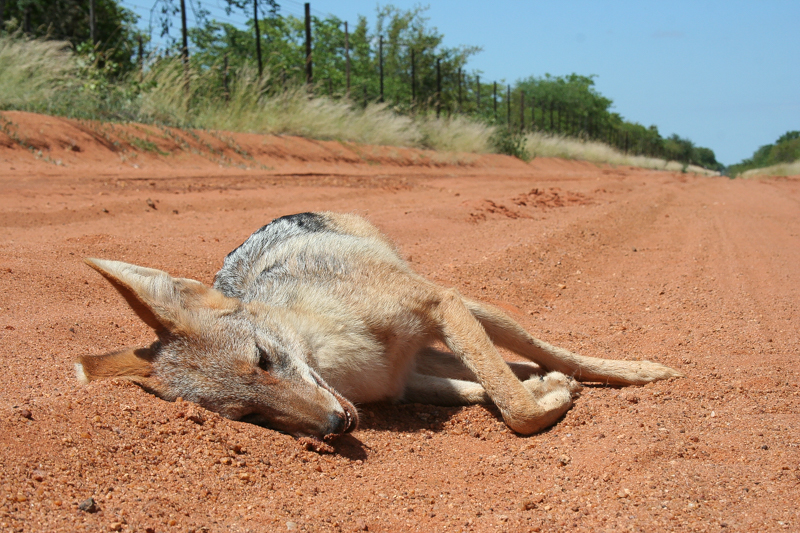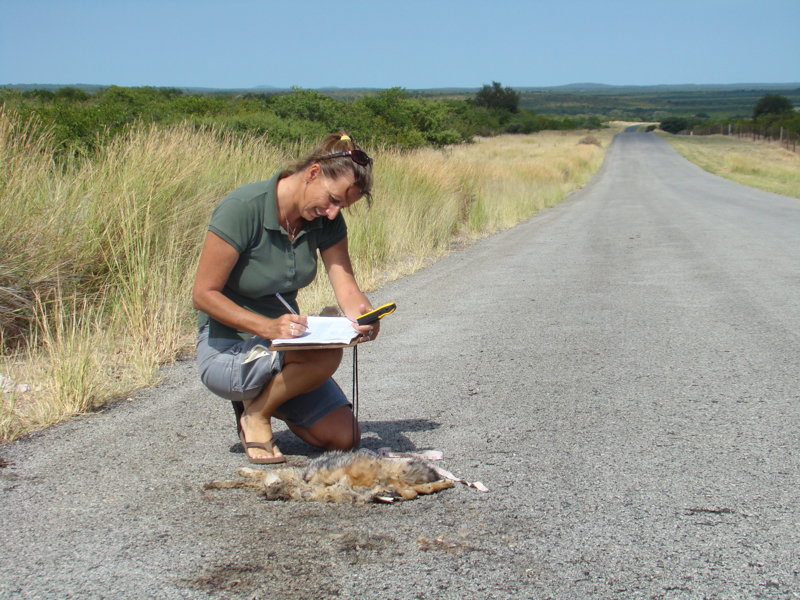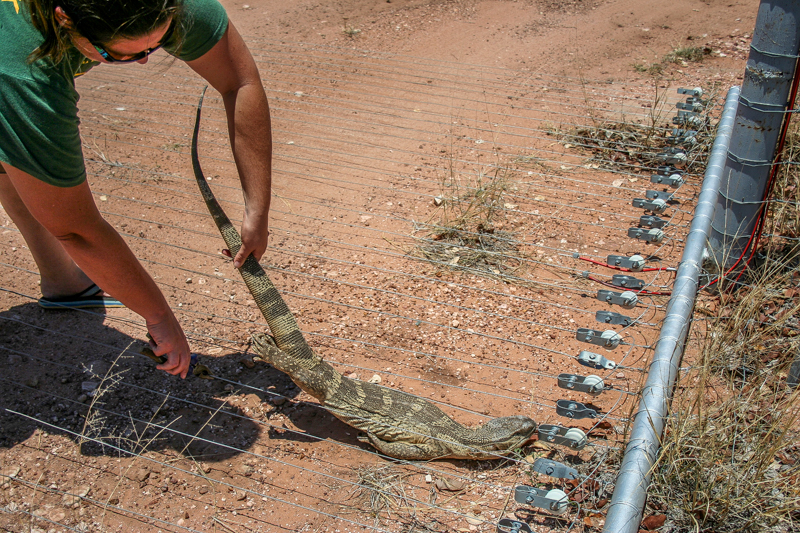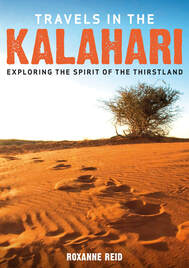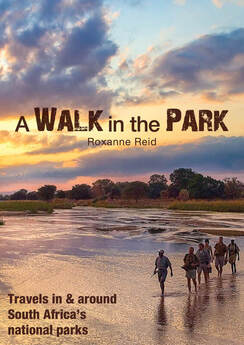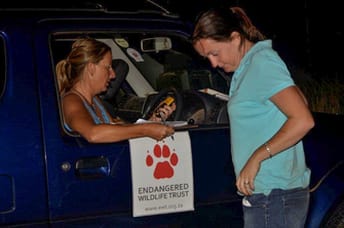
Ever been excited as you approach a game reserve somewhere in South Africa, only to be horrified at how many animals you see splattered and dead on the road? Here’s how you can help reduce roadkill by becoming part of a citizen science research project.
On the outer fringes of our parks, much but not all of this carnage happens at night – which is exactly why you’re not allowed to drive inside the parks after sunset. Bat-eared fox do most of their foraging for termites, insects and rodents at night in summer; spotted eagle owls, genets, polecats and hares are also nocturnal animals.
Since 2012 the Endangered Wildlife Trust (EWT) has been running a Roadkill Research and Mitigation Project. ‘Roadkill is a real threat to a variety of species,’ says programme director Wendy Collinson. ‘This project aims to raise awareness of the threat to wildlife from roads and road users, and to identify, develop and implement ways to lower the number of incidents.’
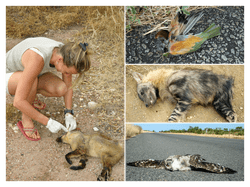 Taking samples from a bat-eared fox, European beeeater, brown hyena and spotted eagle owl
Taking samples from a bat-eared fox, European beeeater, brown hyena and spotted eagle owl Some parks have high volumes of traffic, with potential consequences for wildlife as a result of collisions. Speed and careless driving inside the parks are also cause for concern.
‘Roads have less obvious, indirect effects too,’ she says. ‘For instance, they may fragment habitat, restrict animal movements and increase the isolation of animal populations. Vehicle emissions contribute to air pollution, and rainwater run-off picks up petrol, motor oil and other pollutants, resulting in water pollution that affects wildlife.’
One way you can help is to become a ‘citizen scientist’ who collects field data to help in the EWT’s research. Your help will expand the geographic scope of the study and allow researchers to identify ‘hotspots’ in protected areas. It will also give them a better idea of the impact of roads so that they can put effective measures in place to mitigate, or alleviate the pressure.
To submit roadkill data and photos, you need to specify the location of the roadkill (preferably GPS co-ordinates), try to identify the species and record the date when you saw it. You can send these to [email protected]. You can find additional info on EWT’s website.
The data you collect will lead to more cost-effective, long-term roadkill monitoring and mitigation in our parks. By raising public awareness of the threat, monitoring roadkill patterns over time and space should allow researchers to test the effectiveness of mitigation measures at targeted hotspots. The number of roadkill incidents should also decrease, which is a reward in itself.
If you’d like to help, email Wendy Collinson [email protected] for more info. You can also follow the project on social media on the EWT’s Facebook page.
Copyright © Roxanne Reid - No words or photographs on this site may be used without permission from roxannereid.co.za
